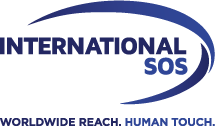Safe travel to Sochi expert advice ahead of the 2014 Winter Games
London
• International SOS and Control Risks share top tips for visitors heading to Russia
• Teams are supporting around 350 global organisations with a potential 10,000 visitors to Sochi
As Russia prepares to welcome the international community to Sochi, there is much speculation and uncertainty surrounding the safety of visitors attending the event. Ahead of the Games, International SOS and Control Risks are sharing essential tips for all those travelling to Russia.
The International SOS and Control Risks alliance brings together the extensive global network and expertise of both companies. International SOS is the world’s leading medical and travel security risk services group. Control Risks is the world’s leading global risk consultancy firm.
The main risks at this year’s Winter Games are associated with movement in the security exclusion zone, which features a number of unprecedented measures. These include a large-scale deployment of security force personnel, the establishment of police checkpoints, restrictions to movement of people and vehicles, as well as surveillance of electronic communication.
Anna Gimborn, Regional Information Manager at International SOS and Control Risks said:
“These security measures have been introduced due to the elevated risk of terrorism during the Games and are aimed at reducing the risk of an attack against Sochi’s transport infrastructure and key sports facilities. Anyone travelling to Sochi for the 2014 Winter Games needs to be fully prepared and aware of the challenges they may face.”
Dr Alexander Ermakov, Deputy Medical Director, International SOS says there will be healthcare challenges for visitors:
“Language barriers and access to healthcare are key concerns for visitors travelling to Russia. Athletes taking part in the games are well catered for. Foreign nationals will be faced with more limited medical care options than they are used to.
Access will be more challenging for the traveller and knowledge of the healthcare options and how to use them is essential. We strongly advise visitors gain a good understanding of the channels to follow or where to get medical assistance when they need it.”
International SOS and Control Risks aim to help visitors prepare for potential challenges with the following advice:
Preparing for your journey
• Be prepared to pack liquids, gels and medicines in your checked-in luggage when boarding internal flights. A security ban on liquids in carry-on luggage was announced on 8 January, although officials have indicated some medicines may be exempt. Check with your airline in advance.
• Maintain flexible itineraries as traffic congestion is likely to be severe. For example, journeys from Sochi to Adler can currently take up to two hours at peak times.
• Rail is the most convenient and quickest form of travel for journeys between central Sochi, the Coastal Cluster and the Mountain Cluster. However, overcrowding is likely at peak times.
• Remain vigilant at railway stations and on trains due to the underlying risk of terrorist attacks. Report any suspicious behaviour or suspect packages to the authorities, utilising a local, Russian speaking contact if possible.
• Book licensed taxis through hotels and be aware that it is difficult to find taxis without booking in advance. There is also a high incidence of taxi scams, so avoid using cars off the street which may be unregistered.
• Ensure your personal documents (most importantly your passport and entry visa to Russia) are with you at all times. The authorities may require these documents at various checkpoints - carrying originals rather than photocopies will be a great help in any dealings with them.
Communicating on the ground
• If you do not speak Russian, try to have someone who can act as an interpreter with you, if at all possible. This will help avoid confusion and delays, particularly with the authorities.
• Information security will be a serious issue. All travellers should assume that all communications are vulnerable to interception. Avoid communicating sensitive matters by telephone, email, SMS or fax and confine business correspondence to a secure private network (VPN).
Money matters
• Credit card theft and fraud is possible, so try to use cash where possible. Only use credit cards in reputable establishments. ATM fraud is on the rise, so if you need to withdraw cash it is advisable to do this inside banks.
• Before travelling, make sure you change your money in your home country. Currency exchangers in Russia only accept clean, crisp bills making exchanging currency difficult.
• Anticipate an extremely limited availability of suitable business accommodation and expect price fluctuations.
Safety first
• Crime levels are high, but the primary risk for travellers on a day-to-day basis is street crime, including petty theft and pick-pocketing.
• Racially and ethnically-motivated crimes remain a key concern and generally target migrants from Central Asia and the Caucasus. There is also a high risk of verbal and physical assault. It is, therefore, recommended that foreigners, who visibly belong to an ethnic minority avoid walking after dark and do not walk alone.
• There is a risk to Lesbian, gay, bisexual and transgender travellers of homophobic abuse or, in more extreme cases, attacks and the attention of law enforcement agencies who can fine, deport or temporarily imprison “offenders” for up to 15 days. Our advice to reduce these risks is to consider avoiding public displays of affection as this has already attracted abuse and attacks.
• Avoid all rallies and demonstrations, particularly in Khosta district, due to the potential for localised disturbances. The security forces may forcibly disperse unauthorised protests.
• Road safety in Russia is poor due to speeding and lack of regard to traffic regulations. Road accidents are one of the leading causes of injury for travellers - Remember to wear a seatbelt.
Medical treatment
• Foreign visitors should not expect the same medical facilities as they would have in their home countries. Access to emergency care may be limited, especially people seeking care through an emergency department of a hospital. Additionally, specialist care might not be readily available. There are limited options of private outpatient care.
• Foreign doctors are not allowed to practice and many doctors do not speak English. It is recommended to bring someone who can act as an interpreter with you if possible, if you visit a medical facility.
• If you are bringing any medication with you, bring an original copy of your prescription from your doctor.
• For any emergencies when you are in Russia, dial 030 or 112.
~~Ends~~
Notes to Editors
About the International SOS Group of Companies
The International SOS Group of Companies is in the business of saving lives, protecting your global workforce from health and security threats. Wherever you are, we deliver customised health, security risk management and wellbeing solutions to fuel your growth and productivity. In the event of extreme weather, an epidemic or a security incident, we provide an immediate response providing peace of mind. Our innovative technology and medical and security expertise focus on prevention, offering real-time, actionable insights and on-the-ground quality delivery. We help protect your people, your organisation's reputation, as well as support your compliance reporting needs. By partnering with us, organisations can fulfil their Duty of Care responsibilities, while empowering business resilience, continuity and sustainability.
Founded in 1985, the International SOS Group, headquartered in London & Singapore, is trusted by 12,000 organisations, including the majority of the Fortune 500, as well as mid-size enterprises, governments, educational institutions and NGOs. 12,000 multicultural medical, security and logistics experts stand with you to provide support & assistance from over 1,000 locations in 90 countries, 24/7, 365 days.
To protect your workforce, we are at your fingertips: www.internationalsos.com










